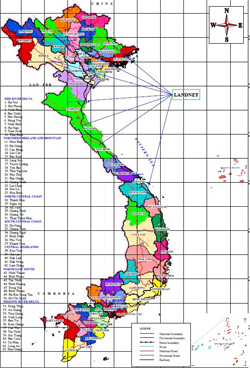Sustainable Income Models
Perma-culture Workshop
- Two young key farmers, one is represented for Tay ethnic minority group (Mr and Mrs. Ha Van Chau), and another one is represented for Dzao ethnic minority group (Mr. and Mrs. Ma Van Toan), from Bac Lang, Dinh Lap district, Lang Son province attended a 3 days workshop (27-29 April 2009) on development of Perma-culture models to be held at HEPA (Human Ecology Protection Area) in Son Kim commune, Huong Son district, Ha Tinh province. The Workshop was involved by different key farmers coming from different parts of Vietnam, students, researchers, development staff, volunteers. All are from Ha Tinh, Nghe An, Quang Binh, Lao Cai, Lang Son, Laos, Australia, and Newzealand!!After Land Rights Pilot Programme implemented 2006-2007 in Bac Lang, these two key farmers have selected by their communities and also as pioneers to do perma-culture pilot models for sustainable land/forest use and management at household level. Mr. Chau and Mr. Toan have presented local experience and local initiatives based farming system such as bio-diversity vegetable garden, nurseries and livestock raising, banana circle,…for discussion at the workshop!
Mr. Chau brought to the workshop an initiative for making “ a saved pig pen” (see picture attached). He used normal wood with small size or bamboo to make partition in horizontal direction to keep pig not trapped, and thus, it is easy to replace and remove when necessary. Ms. Tran Thi Binh (Lam Trach commune, Xuan Trach district, Quang Binh province) who is raising hundreds of pigs was very interested in this initiative. She said it is not only convenient but also much lower costs for using local material (bamboo, small wood,….) which is more clean, comfortable for pigs growing. By this model, it is easy for other farmers to learn and to follow.
Mr. Toan has also shared his initiative in using bamboo for making plastic seed-bags. This lesson was highly appreciated by workshop participants. The bamboo made seed – bags are really effective as it is disintegrated itself, and not like plastic seed bags that it is to move out as it is and thus, the living rate of seedlings are high. Beside this, local people do not have to spend money for buying plastic seed bags but environment is protected.
After the workshop, these two key farmers have actively registered to join perma-culture network so that they can have chance for learning and sharing experiences on local initiatives based perma-culture for sustainable natural resources use and management.
CIRUM






















